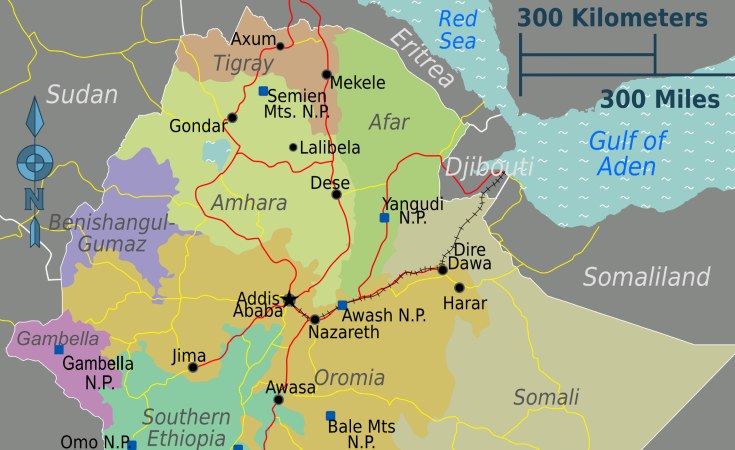Addis Abeba — People in Irob, a northeastern district of Tigray, have been facing the absence of banking services since the war broke out between the federal government and the Tigray Liberation Front (TPLF) in November 2020. The closure has continued even after the signing of the Pretoria Peace Agreement in November 2022.
Residents in Irob, a minority group in the Tigray region that shares a border with Eritrea, have been isolated from the rest of Tigray due to security concerns. Currently, four kebeles in Irob are under the control of Eritrean troops, making it challenging to provide and access public services as well as deliver humanitarian aid.
Fana Abrha, a mother of five residing in Dawhan, the administrative seat of Irob woreda, expressed her difficulties in accessing banking services since the war started three years ago. She mentioned that she would have to travel over 50 kilometers from Dawhan to Adigrat city to access banking services, which also poses a security risk since parts of Irob are under the control of Eritrean troops.
Previously, the Commercial Bank of Ethiopia, Lion International Bank, and Dedebit Microfinance Institution provided banking services but have been unable to reopen their services, even after the peace agreement.
Fana further explained that if a family member sent money from anywhere, including outside of the country, they would have to travel to Adigrat city, incurring transportation costs of over 300 birr. Due to security issues and difficult roads, girls, women, and elderly individuals are unable to travel. Fana emphasized the urgent need for reopening banking services and other related public services, as the people of Irob are suffering from unnecessary expenses.
Eyasu Misgina, the head of the Irob woreda administration, informed Addis Standard that the absence of banking services in Irob has caused residents to struggle to access their own money, despite the woreda administration's efforts. The woreda administration wrote a letter addressed to the Mekelle District Office of the Commercial Bank of Ethiopia (CBE). However, Eyasu says banking services have not yet commenced.
Gebreyesus Bisrat, a former branch manager of the CBE in Dawhan who now works at the Adigrat branch, revealed that the Dawhan branch couldn't reopen even after the peace deal due to security issues in the area. He stated that the branch suffered a loss amounting to over seven million birr during the war, and it would be difficult to deploy human resources for security reasons since Eritrean armed forces control parts of Irob.
Last month, Addis Standard reported that despite the signing of the Pretoria Peace Deal in November 2022, Eritrean forces continue to engage in abducting civilians and perpetrating sexual violence in the northeastern part of the Tigray region, particularly in the Irob woreda. Officials have reported that more than 28 youths have been abducted in this area within the past ten months.


